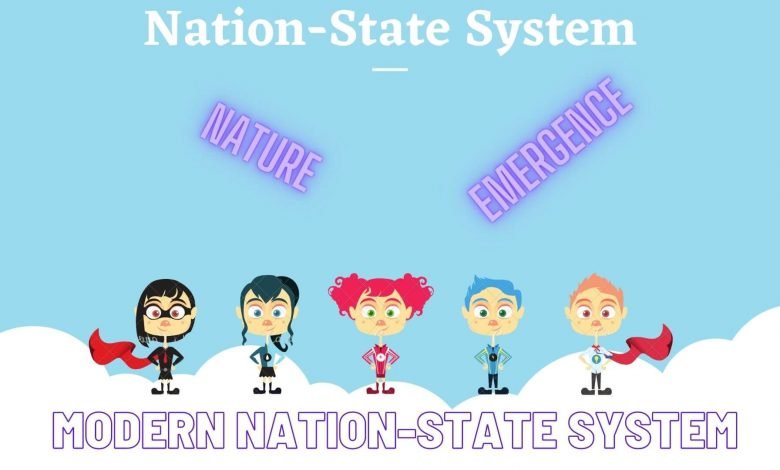
A nation is a community or a group of people having some common values like language, religion or ethnicity, etc. While a state is an organized political community under a certain government within a specific boundary.
The Nation-State system is neither a state nor nation but a way for combining or organizing both within a specific boundary of that state and including that nation.
In International Relations, the Nation-State system plays an important role in organizing the nations into different groups. Organize in a way that they can interact effectively with each other and build an efficient global community.
Here, is some basic understanding of the nation-state system in International Relations for the preparation of CSS or PMS.
Basic concepts of Political Science for CSS and PMS
What is a nation-state System?
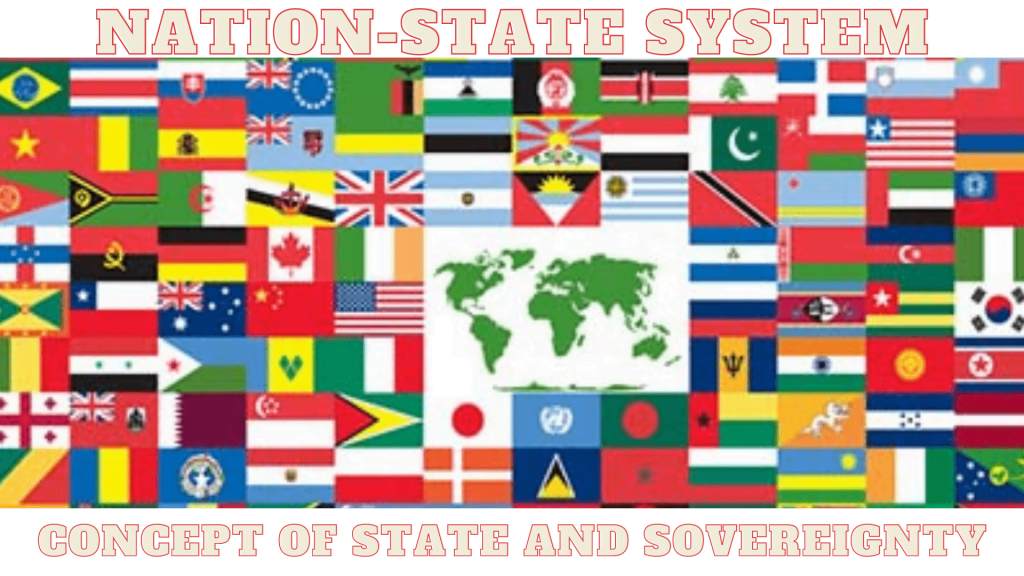
A nation-state system is a concept in which a particular nation lives within the boundaries of a certain state. It is rather a nation living in a state.
Each Nation-State is given sovereignty over its region and political matters with no interference from the outside and the nation recognizes that state as its homeland.
A Nation-State system usually contains just one Nation but certain Nation-States systems with more than one nation are known for example the UK is also regarded as a Nation-State although it contains more than one nation.
Relationship between State and Nation
A state and nation are two different aspects of the same thing that are mostly misunderstood and confused.
A state is a humanly devised structure that exists to support and protect the nation’s interests. According to Aristotle, a state is a community of persons that have some supreme purpose.
A nation is an ethnic group, with shared characteristics like language and culture, which makes a political claim for national self-determination.
The nation provides one of the most crucial elements of the state i.e. population and in turn, the state provides the state with resources and a place to live.
The thing to ponder is that a nation can exist without a state but at least one nation is necessary for the existence of the state.
A nation could be a minority or a majority in the state depending upon the number of citizens living there. The Nation-State system in International relations lets different nations living in distinct states live happily and cooperate with other states.
The Rise of the Nation-State System (Important Factors)
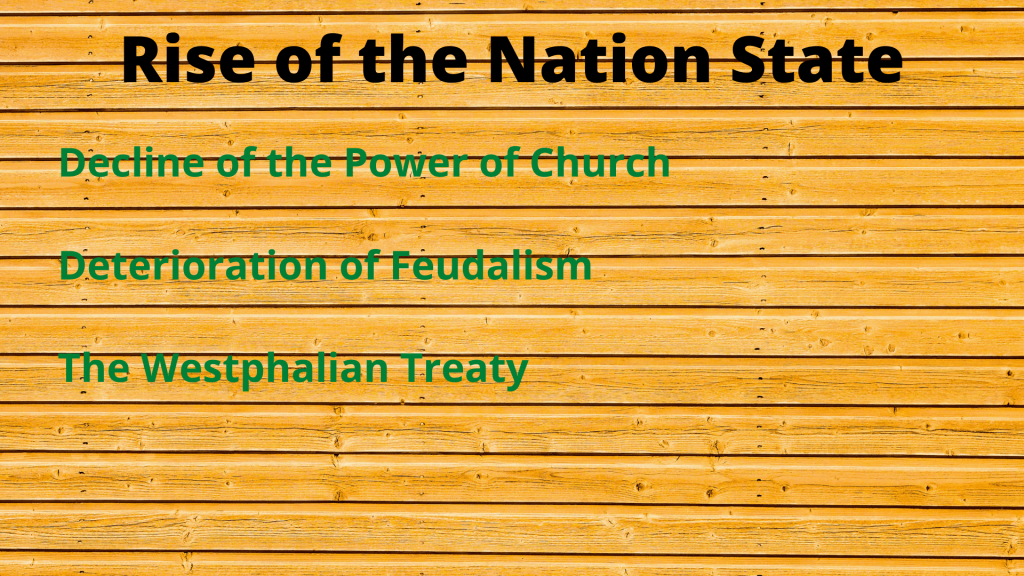
The main factor involved in the rise of the Nation-State System is the decline of the power of the Church which started in the 14th and 15th centuries when people started to challenge the church.
The deterioration of Feudalism is also the main factor in the rise of the Nation-State System as it gave birth to nationalism in Europe and other parts of the world.
30 years of war and self-assertive kings in Europe are also one important factor for the creation of these nation-states.
The Rise and Decline of the great Mughal Empire (Journey from the golden age to overthrown)
When Europe faced 30 years of war, they held a conference in Germany and major countries signed a treaty and that treaty is known as Westphalian Treaty.
And after the Westphalian treaty in Germany, it was decided that every state will be governed by international law according to which the state will have full sovereignty in its territory.
This treaty was designed to form order among the nations and it is still in action for every nation. In this way, a system of the nation-state was added in the uniformed national culture of state policy.
Review of a Book Based on Life in war
Basic features of the Nation-State System in International relations
A Nation-State system in International Relations much posses the features of both a state and a nation. Nation-State Systems develops their national identities while ancient states were weak in building their any national identities.
In the earliest form, the state was regarded as an ethical institution but in the later years, a new term political ethics was introduced by Niccolo Machiavelli which means that Political ethics has nothing to do with religion and moral values as far as there is peace in the state.
Like a nation, it must have a common value like ethnicity, religion, language, and culture, etc.
On the other hand, like a state, it must have a Political Government, and the whole Nation-State works under that government.
Moreover, a particular territory is also necessary for the existence of the Nation-State with definite boundaries.
Nation-State Examples
A Nation-State is a nation living in a state, it can have various examples throughout the world.
Like Chinese people are the best example of a nation and as they are living in the Republic of China, they are a Nation-State. Moreover, Japan, France, and Germany are also examples of the Nation-State in International Relations.
However, France is often considered the first-ever nation-state after the French Revolution.
Evolution of Nation-State System in International Relations
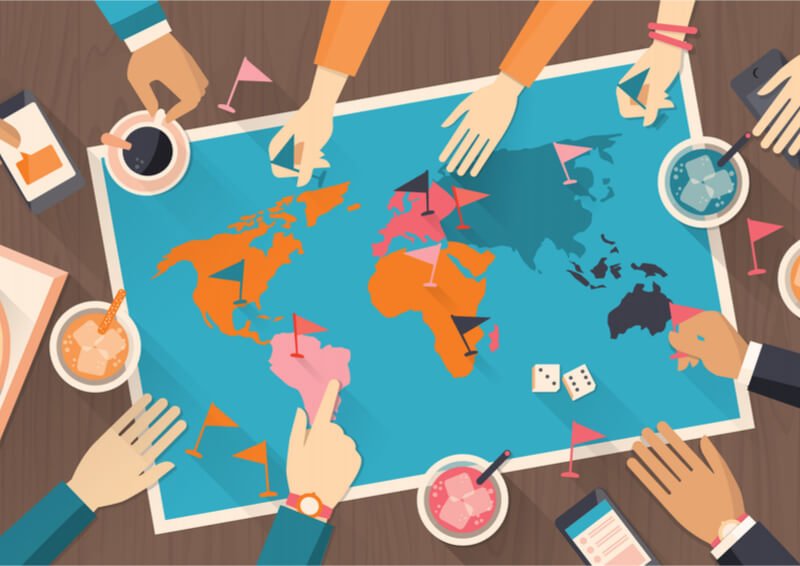
There was a time when the world consisted of kingdoms and it was ruled by various kings and other monarchs but these monarchs were self-assertive as they did not accept any other king.
These kings did not have specific borders but they often called them titles like the king of the whole world and, king of all nations, etc.
Here is the Synchronized list of The Kings of the Mughal Era
When these kingdoms started to expand their borders to vast distances they started making associations rather than having their blood relations to govern that field and this thing helped the Romans to expand their rule in the Great Roman Empire.
Then Europe faced 30 years of war in the 17th century and they came to the point that these monarchs and Church dominance can no longer maintain order in the world and then they signed a Westphalian treaty and new states were created and these states were called the nation-state systems in international relation.
Initially, these were just created to assign sovereignty to kings in their specific domains so that they will not chase the kingdoms of other kings and later different nations were born in the same states which transformed these already existing nation-states into modern nation-states.
The Modern Nation-State System
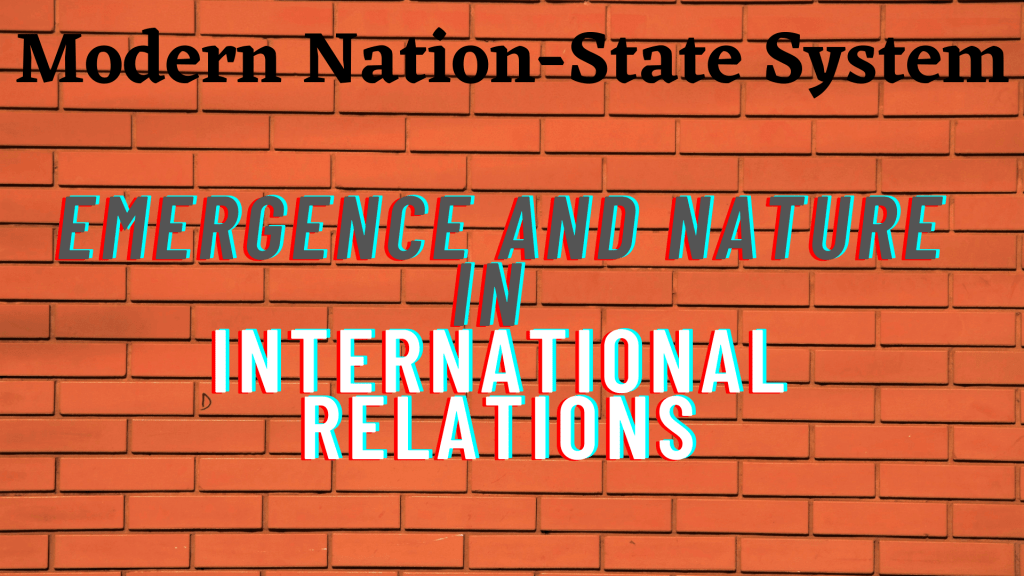
Modern Nation-State System is a modified form of the Nation-State System which was the result of Post Colonialism and gave rise to many new sovereign states.
It was developed to make all the states sovereign and maintain a balance of power in the world. Initially, it was developed in Europe but later, it spread all across the globe.
The Emergence of the Modern Nation-State System in International Relations
During the period of British Colonialism, many states lost their rights to govern their own countries with sovereignty which was totally against the rules of the Westphalian Treaty and played a significant role in raising the conflicts of world wars.
This signifies the purity of the Westphalian treaty and the main reason for nation-states failing in not maintaining the balance of power is because Westphalian Treaty was limited to just some dominating countries of Europe while other states were not involved in this.
So, the modern nation-state system was developed in international relations according to which no country can take sovereignty over the other states.
Moreover, it was developed to end wars among the countries and keep a check over the Dictators who have remained very dominant throughout history.
Nature of Modern Nation-State System
The Modern nation-state system gives foundation to sovereignty as well as to a state. It has limited and confined the boundaries of every state.
This concept was originally designed by modern Political Scientists.
So, no state can cause a conflict at the border of another state and its ambition to expand its borders has been forfeit. The modern nation-state system gives power and complete control to every state over its territory.
Conclusion
The Nation-State System in International relations was actually developed to create peace which it had actually given to the world but it was signed just among some influential countries of Europe.
As religious and regional wars to suppress each other were very common among the nations in Europe, this system was developed in international relations to end this series of wars. But afterwards, this system became a standard system of all the nations of the world.



